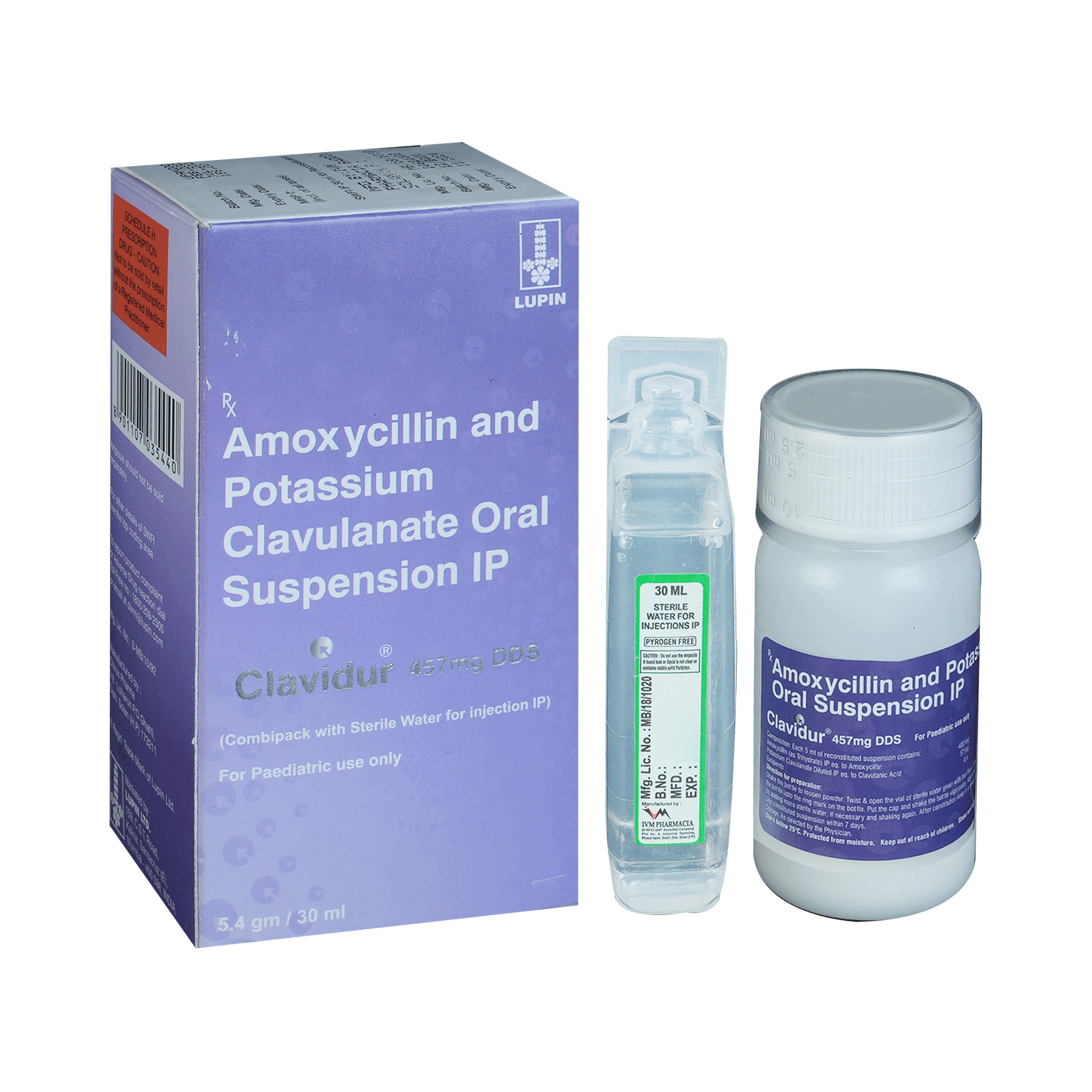
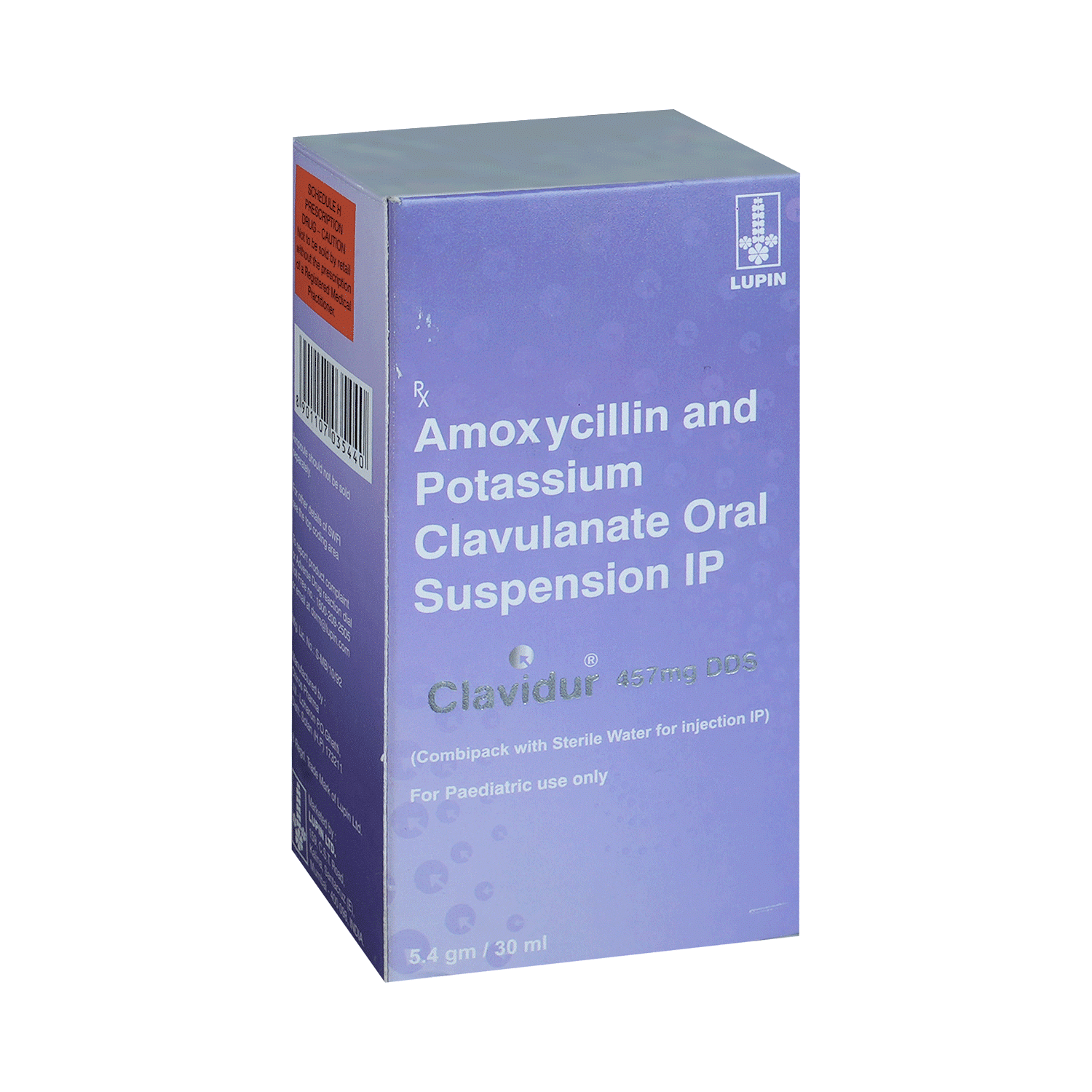
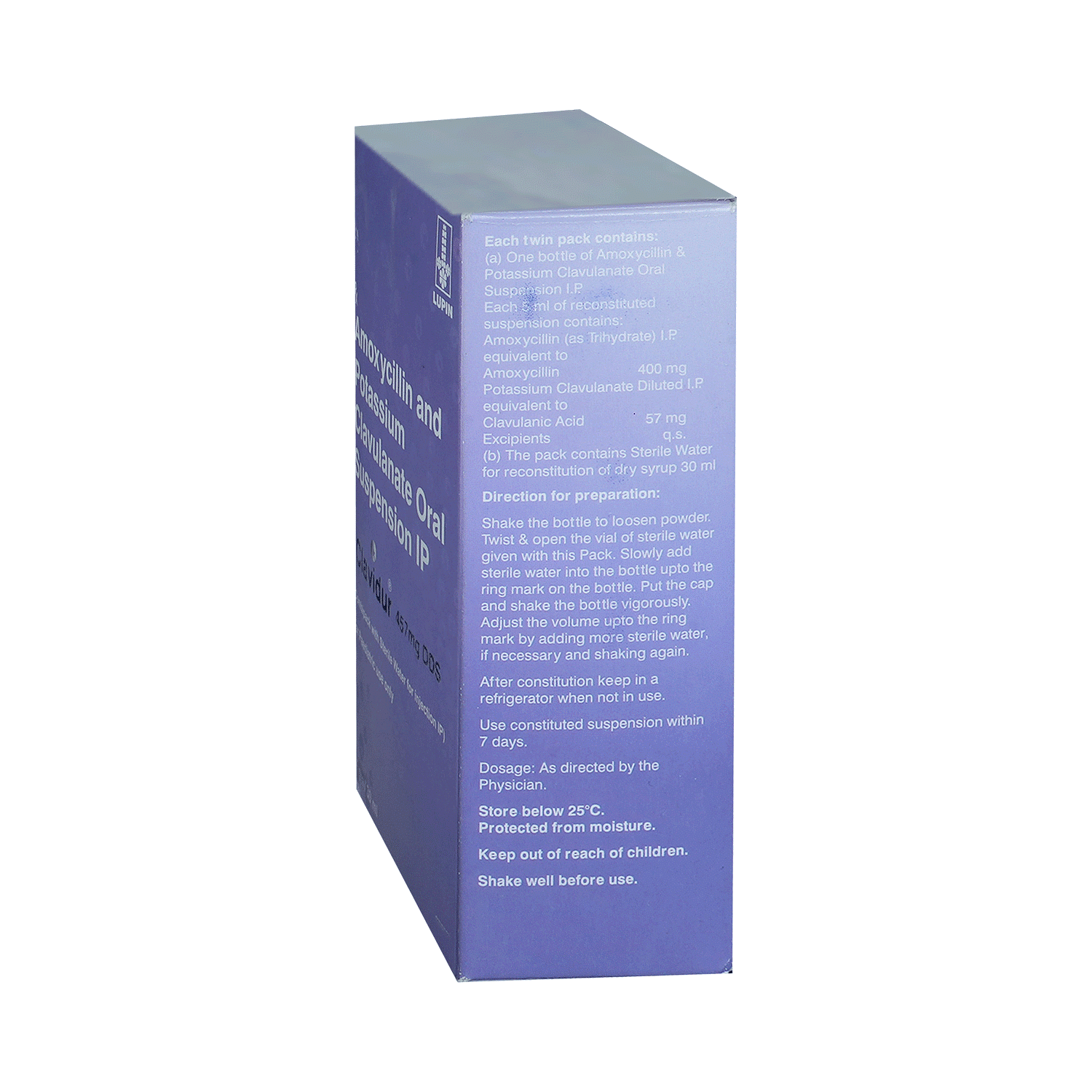
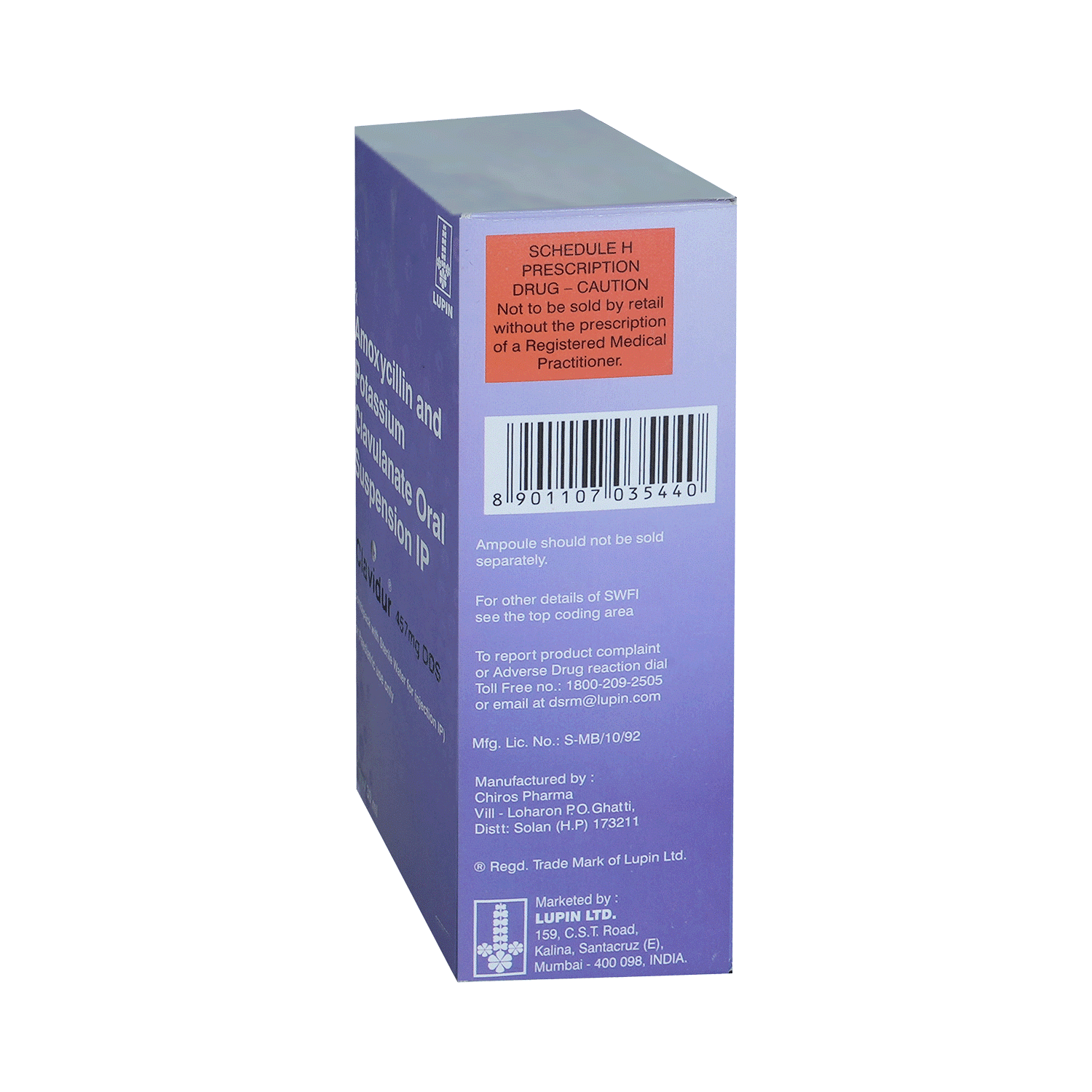
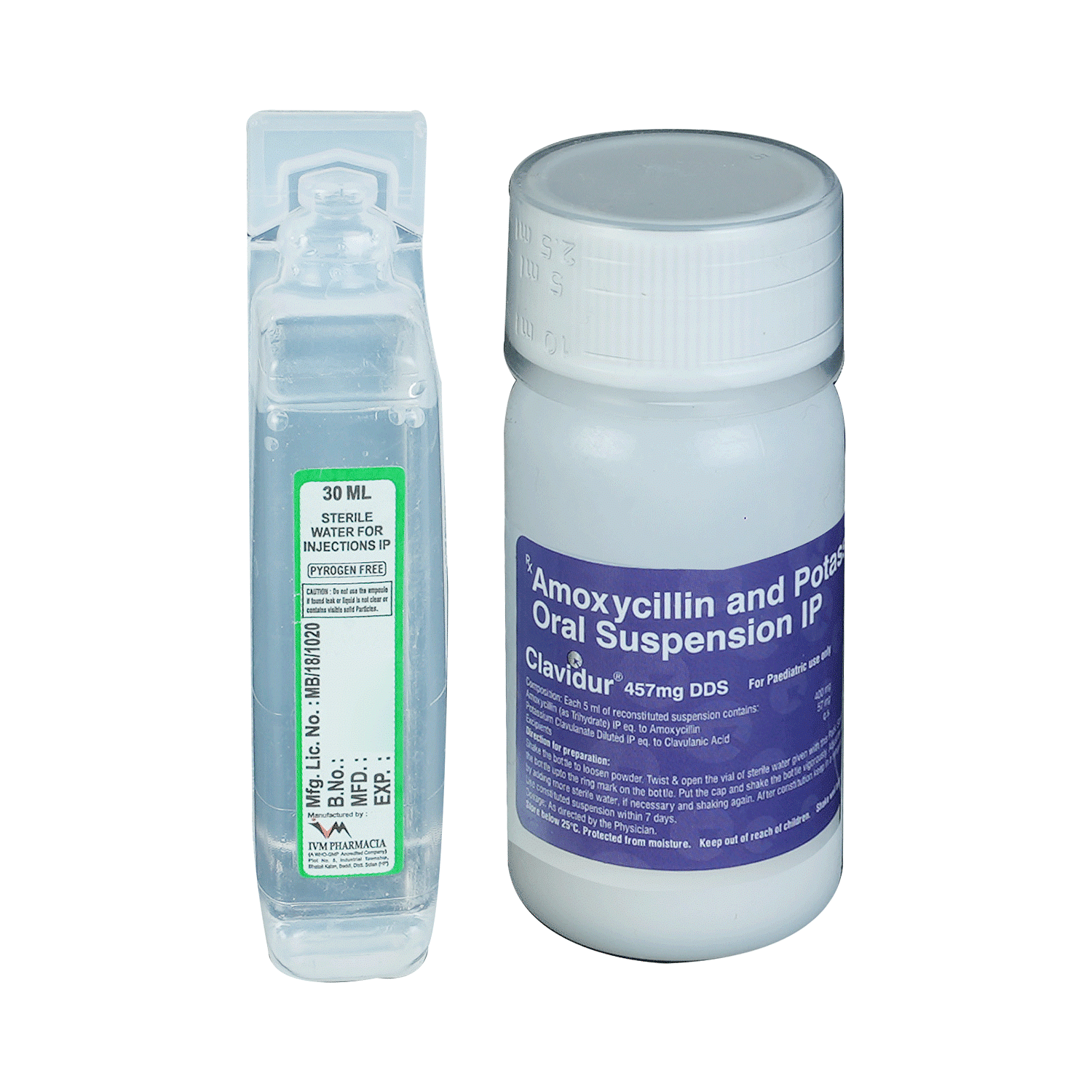
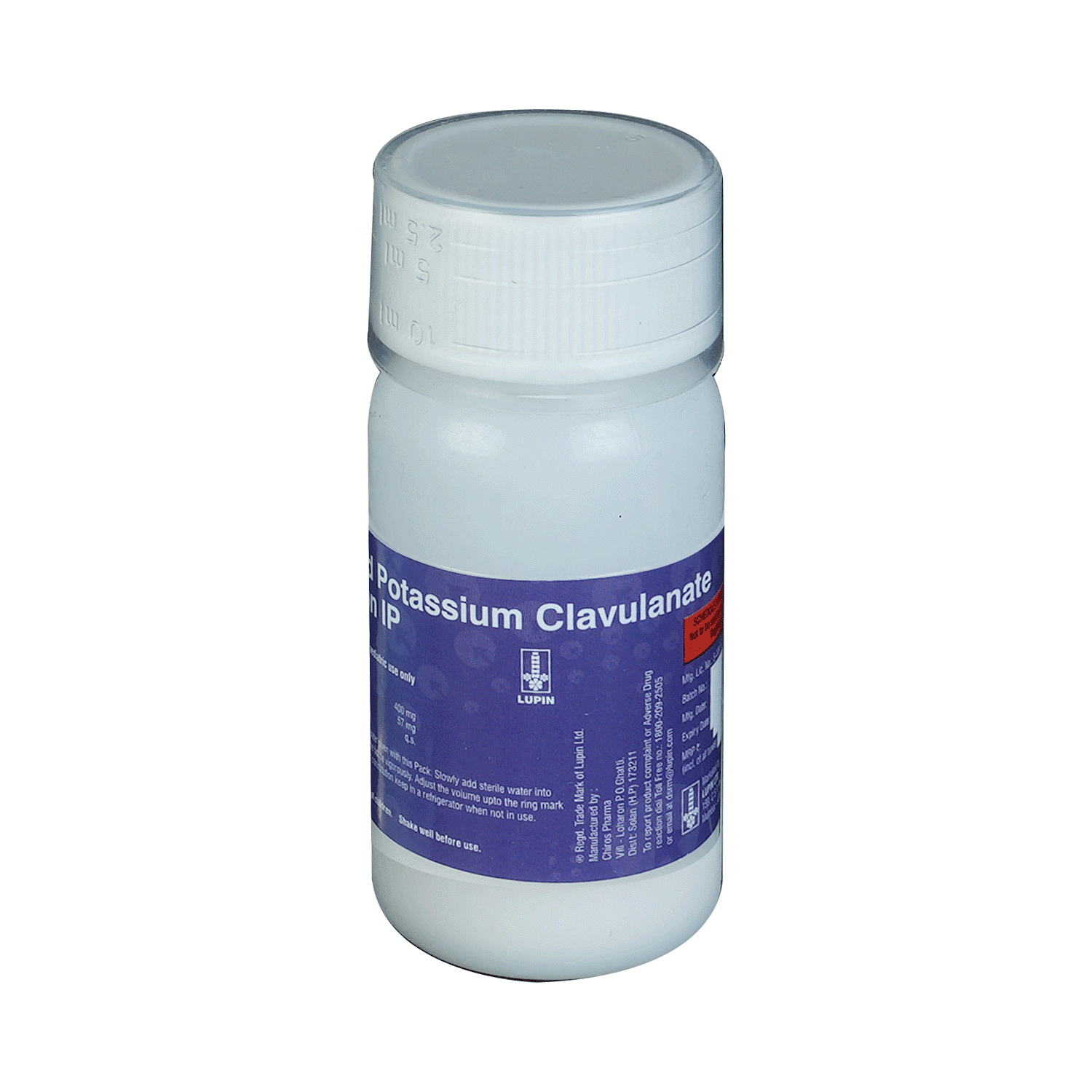
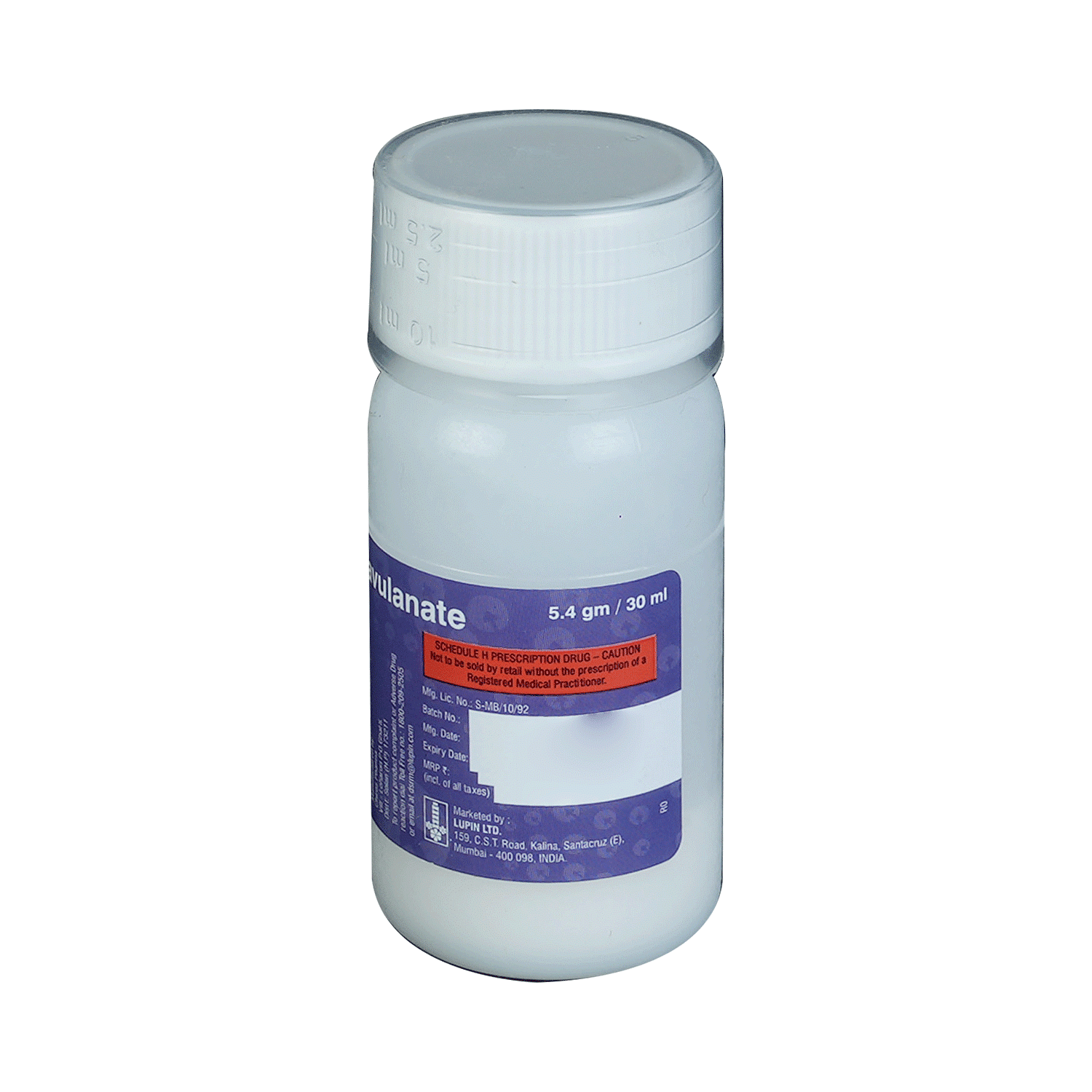
Clavidur 457mg DDS Oral Suspension
Manufacturer
Lupin Ltd
Salt Composition
Amoxycillin (400mg/5ml) + Clavulanic Acid (57mg/5ml)
Key Information
Short Description
Clavidur 457mg DDS Oral Suspension is an antibiotic medicine that helps treat bacterial infections of the ear, nose, throat, chest, lungs, teeth, skin, and urinary tract.
Dosage Form
Oral Suspension
Introduction
Clavidur 457mg DDS Oral Suspension is an antibiotic medicine that helps treat bacterial infections of the ear, nose, throat, chest, lungs, teeth, skin, and urinary tract. It is capable of killing bacteria that have become resistant to other therapies and thus also helps treat tuberculosis that is resistant to other treatments.
Directions for Use
Never give Clavidur 457mg DDS Oral Suspension to your child until and unless prescribed by the doctor. You must also never share your child’s medicine with anyone else even if they show similar symptoms.
Safety Information
Side Effects
No common side effects listed.
How it works
Clavidur 457mg DDS Oral Suspension is an antibiotic. It has two active agents amoxycillin and clavulanic acid. Amoxycillin works by preventing the formation of the bacterial protective covering (cell wall) essential for the survival of the bacteria. Whereas clavulanic acid serves a special purpose of inhibiting an enzyme (beta-lactamase) that is produced by resistant bacteria.
Quick Tips
Check ‘expiry’ before giving Clavidur 457mg DDS Oral Suspension to your child. Immediately discard all the expired medicines. Stop Clavidur 457mg DDS Oral Suspension immediately if your child develops an itchy rash, facial swelling, or breathing difficulty. Report to the doctor without any delay.
Related Medicines
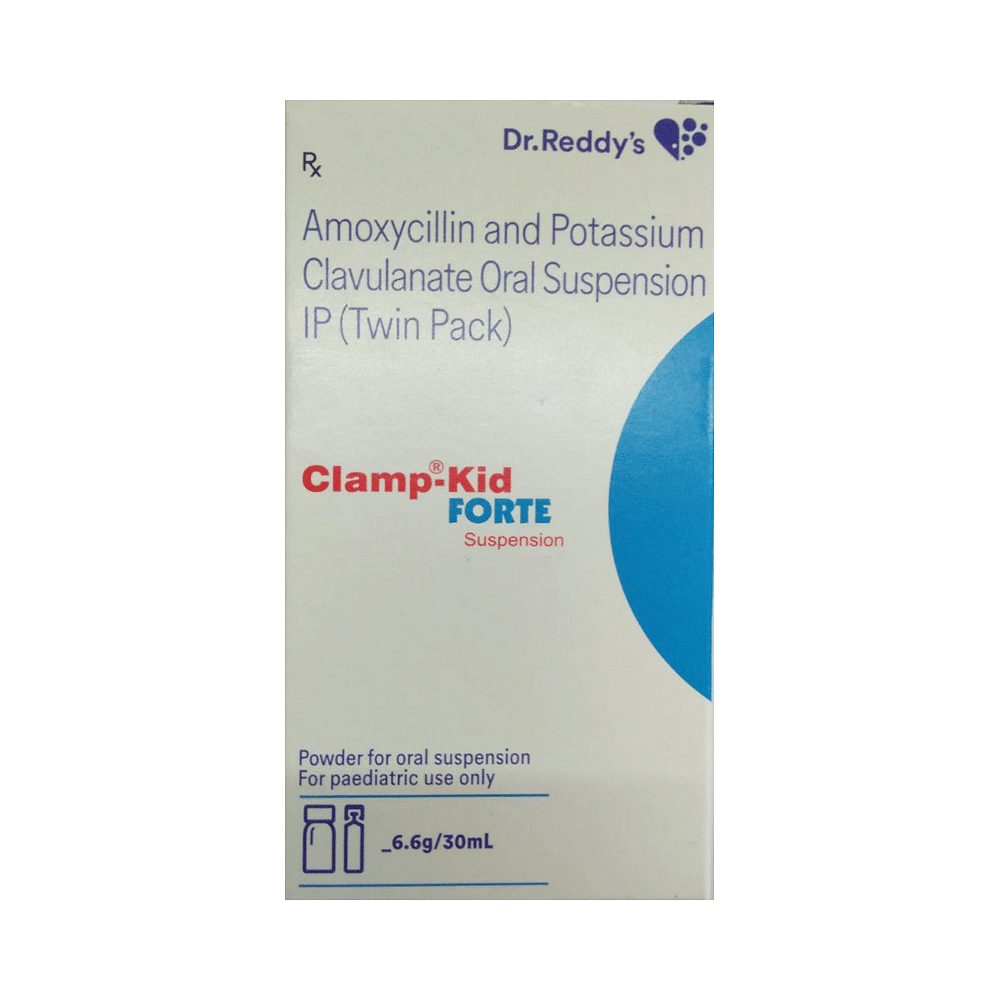
Clamp Kid Forte Suspension

Moxikind-CV Forte Dry Syrup
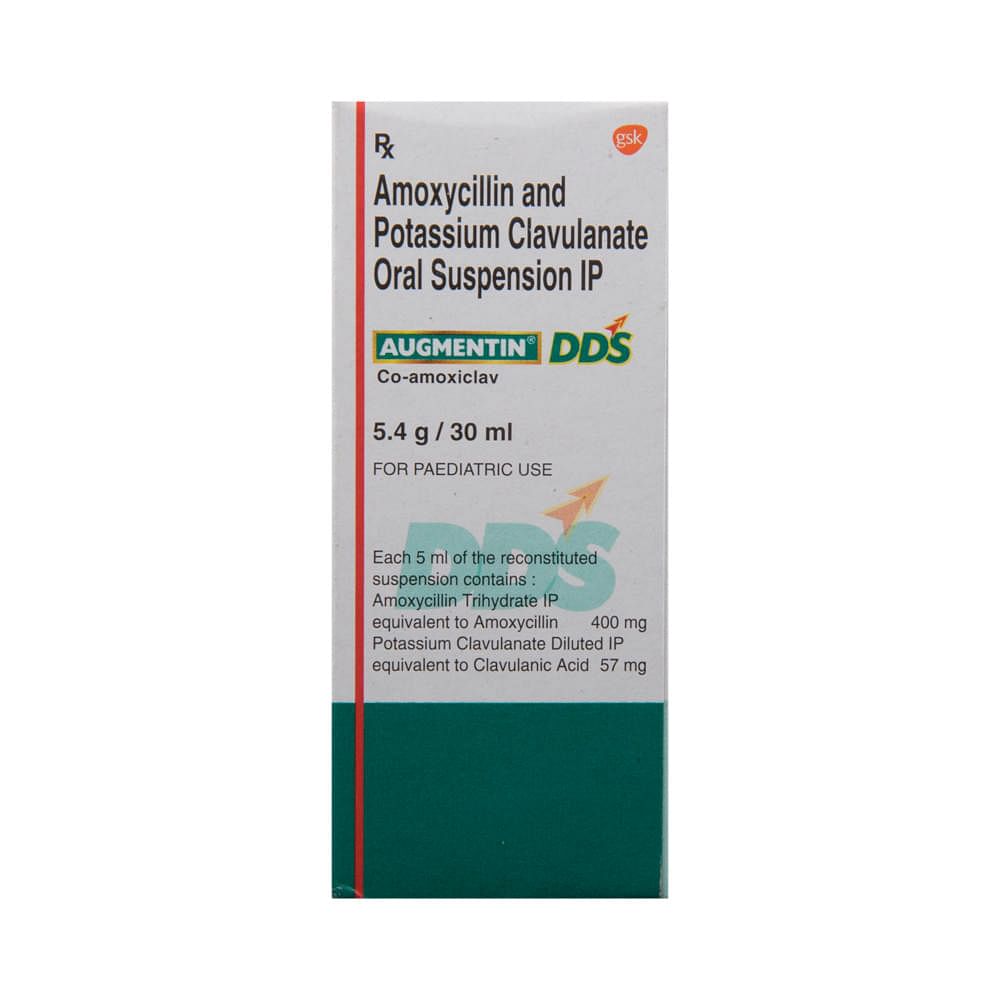
Augmentin DDS Suspension
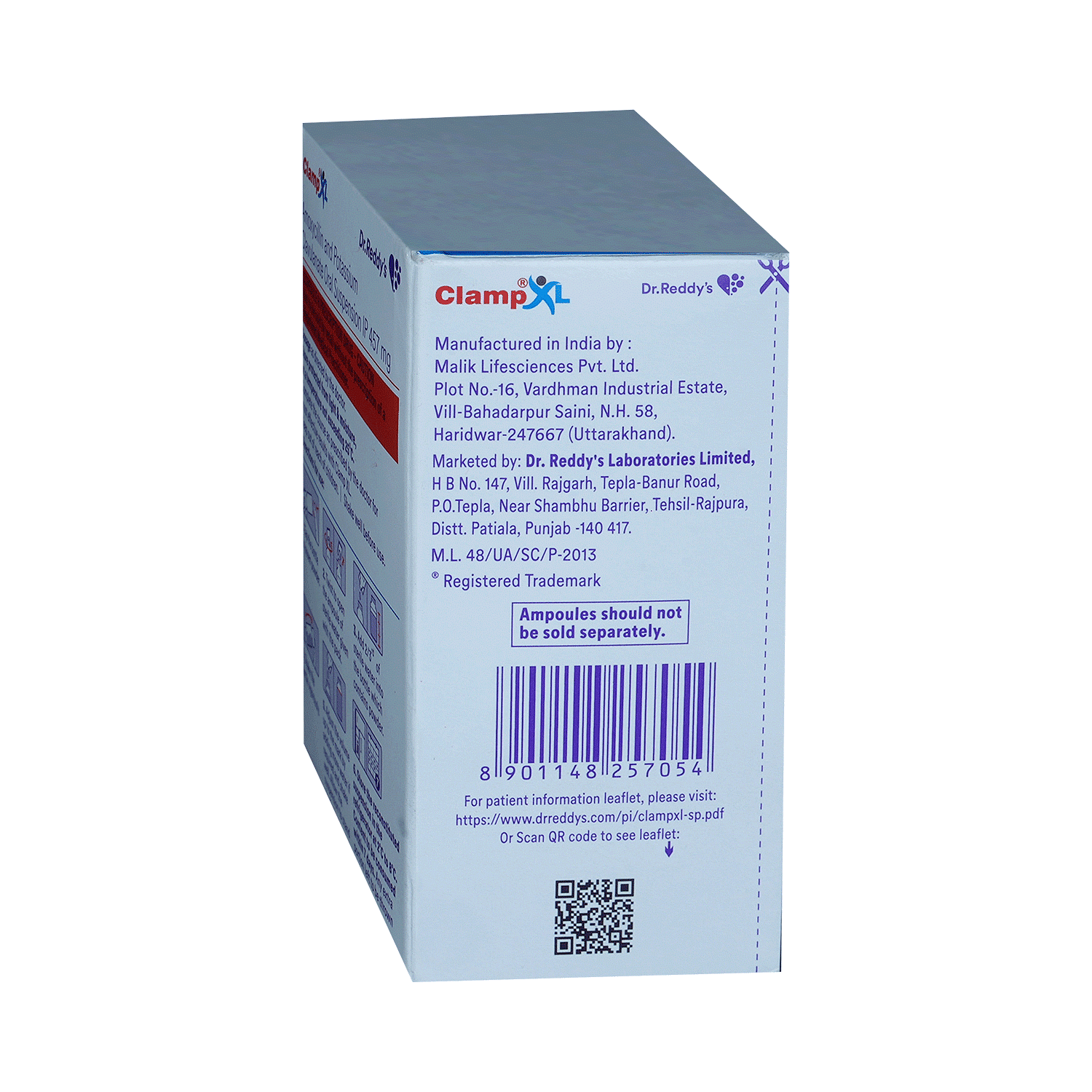
Clamp Xl Suspension

Nishclav-Forte Dry Syrup
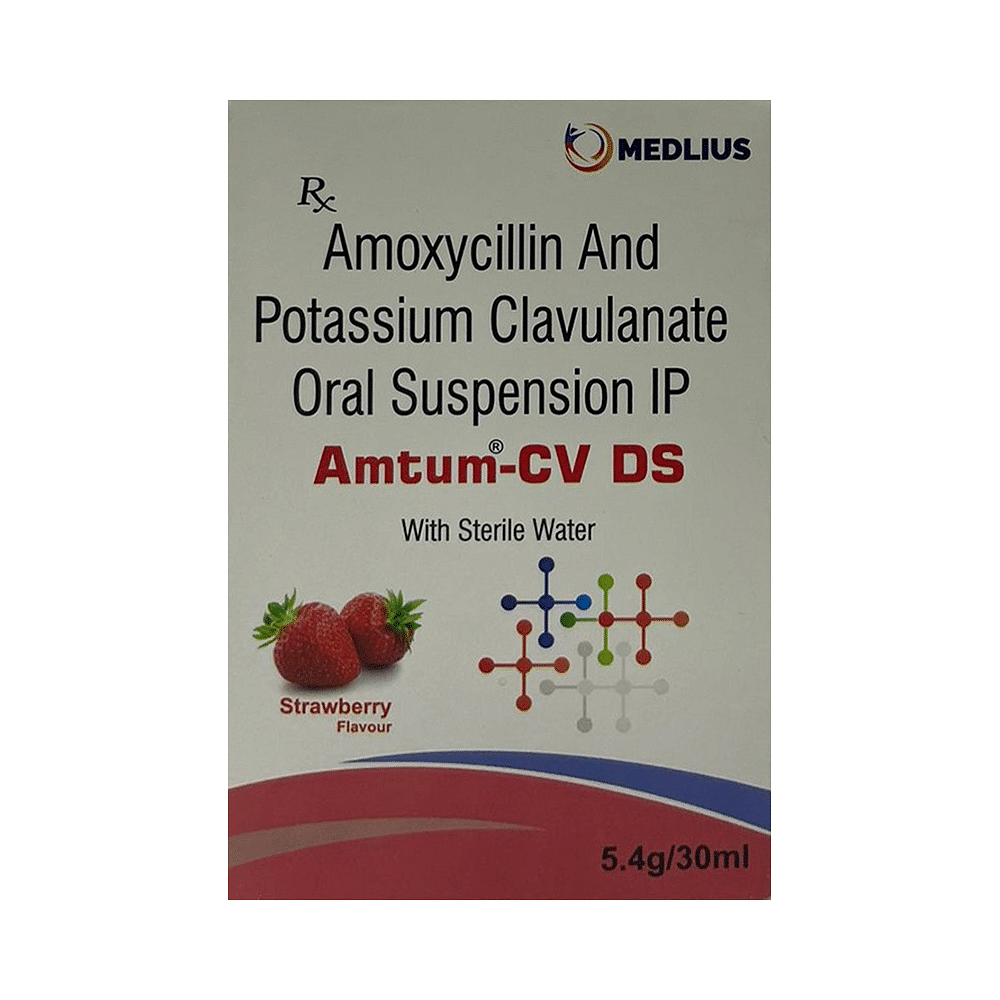
Amtum-CV DS Oral Suspension Strawberry

Extclav-DS Dry Syrup

Omexin DS Dry Syrup

Metclav-Duo DS Dry Syrup

Moxymek-CV Plus Dry Syrup
Frequently asked questions
Can other medicines be given at the same time as Clavidur 457mg DDS Oral Suspension?
Clavidur 457mg DDS Oral Suspension may interact with certain medications. Before starting this medication, it is crucial to inform your child's doctor about all other medications they are taking. Additionally, consult with your child's doctor before administering any additional medicines to your child.
Can I get my child vaccinated while on treatment with Clavidur 457mg DDS Oral Suspension?
Antibiotics generally do not interfere with vaccine ingredients or cause adverse reactions in children already vaccinated. However, it's recommended to wait until your child recovers from an illness before receiving any vaccination. Once your child feels better, the vaccine can be administered.
Which lab tests may my child undergo while taking Clavidur 457mg DDS Oral Suspension on a long-term basis?
The doctor may periodically monitor kidney and liver function in children who are undergoing long-term treatment with Clavidur 457mg DDS Oral Suspension.
Can I give a higher than the recommended dose of Clavidur 457mg DDS Oral Suspension to my child?
Giving a higher dose than prescribed can increase potential side effects. If your child experiences worsening symptoms, contact your doctor for evaluation.
Can I stop giving Clavidur 457mg DDS Oral Suspension to my child when the symptoms are relieved?
Do not stop administering this medication until completing the full course. Even if you feel better, continue treatment until it is complete, as the medication might still provide beneficial effects.
Can Clavidur 457mg DDS Oral Suspension cause diarrhea?
Yes, Clavidur 457mg DDS Oral Suspension may cause diarrhea. It's an antibiotic that kills harmful bacteria, and this medication can also impact the beneficial bacteria in your child's stomach, leading to diarrhea. Encourage your child to drink plenty of fluids if they experience diarrhea. If diarrhea persists or you notice signs of dehydration (decreased urination with dark-colored and strong-smelling urine), consult with a healthcare professional before administering any other medications.
Do all viral common colds result in secondary bacterial infection?
Most cases of viral cold do not develop secondary bacterial infections. In fact, using antibiotics for a viral infection can increase the risk of side effects, so use antibiotics only when directed by a healthcare professional.
The mucus coming out of my child’s nose is yellow-green. Is it a sign of a bacterial infection?
Yellow or green mucus in the nose does not automatically indicate a bacterial infection. During a common cold, this might be normal as mucus thickens and changes color (from clear to yellow or green) as symptoms improve. Most colds last for 7-10 days.
Is there any sign which shows that my child needs immediate medical attention?
Seek emergency care immediately if your child experiences serious allergic reactions (difficulty breathing, skin rash), gastrointestinal infections (diarrhea), or liver damage (weakness, paleness, vomiting). Though rare, these side effects are significant and require medical attention.


